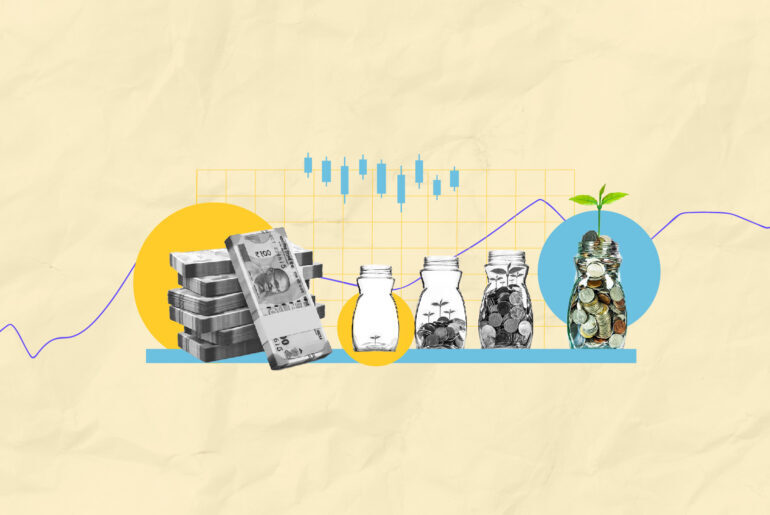Last Updated on May 25, 2022 by Neera Bhardwaj
Many retired folks and individuals often sustain themselves off the interest earned on fixed deposits or public provident funds. The more financially savvy folks park some money in dividend stocks, hoping to live a life of leisure on this passive income.
Equity investments yield can be measured either via an appreciation in the value of the stock or via dividends (if the company pays out any). Stocks that consistently pay dividends are called dividend stocks.
But are dividend stocks meant only for those looking for passive income? Do they offer low returns? Let’s explore this and more as we demystify the 3 biggest misconceptions about dividend stocks!
Table of Contents
Dividend stocks are risk-free
There is no such thing as a free lunch, and all stocks (yes, even dividend stocks!) inherently require you to undertake a certain level of risk. Dividend stocks may appear safer due to their regular payouts, but they represent equity ownership in a company. And no equity ownership is ‘risk-free’ or guarantees assured returns.
All equity stocks have either a systematic risk or a company-specific risk. The systematic risk arises from various economic conditions. An apt example here could be a breakdown in supply chain arising from the Covid-19 lockdowns or could be specific to an industry such as the semiconductor chip shortage.
The company-specific risk arises from factors that are internal to the company. For example, a poor distributor network in the FMCG space or a labour union strike. These risks exist across equity stocks whether they pay out regular dividends or not.
While dividend stocks may seem to offer a reliable source of income to investors, these companies are equally volatile and susceptible to market risks. In the same vein, you must also know that while certain companies do have an established dividend policy, they can suspend dividends at wish, even if they have a healthy dividend payout policy.
In such a scenario, if you depend on income from dividends, you may find yourself in a tight spot. In short, dividends cannot be guaranteed, and they are not risk-free.
You should always invest in high dividend yield stocks
Dividend yield measures the dividend paid vs. the market price of the stock in percentage terms. When the goal is to identify the right dividend stock to invest in, it may appear that the highest dividend yield stock is the right one to pick. However, judging a book by its cover may prove costly here.
Let’s take a look at an example. Company A offers a 7% dividend yield on an Rs. 100 stock that implies a payout of Rs. 7. Company B offers a 5% dividend yield on an Rs. 180 stock that implies a payout of Rs. 9. As you can tell, a higher dividend yield doesn’t necessarily correspond to a higher dividend payout – the market price of the stock plays an important role here.
The lower market price of Company A may also reveal lower expectations of future prospects priced in by the market participants. In this case, a higher dividend yield would not be of much use if future prospects do not seem positive and the company has to suspend paying dividends altogether. Hence dividend yield value cannot be the only deciding factor.
You can get better returns with growth stocks
Broad generalizations are typically difficult to withstand in financial markets, and so is the case with this popular misconception. Each stock must be evaluated holistically.
When speaking of growth stocks, these may see higher appreciation, but the steady value appreciation of dividend stocks and the dividends combined may outperform growth stocks. In fact, a study by famed Dartmouth professor Kenneth French showed that dividend stocks outperformed non-dividend-paying stocks on average from 1927 to 2015.
Investors need to clear the misconception that growth stocks can pay better dividends. The truth here is that dividend payout by a company will depend on several factors ranging right from the company’s performance to economic conditions to future growth plans (A company may wish to reinfuse profits in the business).
Conclusion
Dividend stocks can be a great addition to your portfolio and serve as additional returns. But breakthrough the misconception that dividend stocks are risk-free and are higher from growth stocks. Also, higher dividend yield need not translate into higher dividends as market prices may vary. Do thorough due diligence and only then invest in any stock or scheme.
- Money Market Funds in India – Meaning, Features & How They Work - Apr 22, 2025
- Top Fund of Funds (FOF) in India – Full Form, Types & More - Mar 28, 2025
- Bond Funds – Meaning, Types, Risks, and Benefits - Mar 27, 2025




